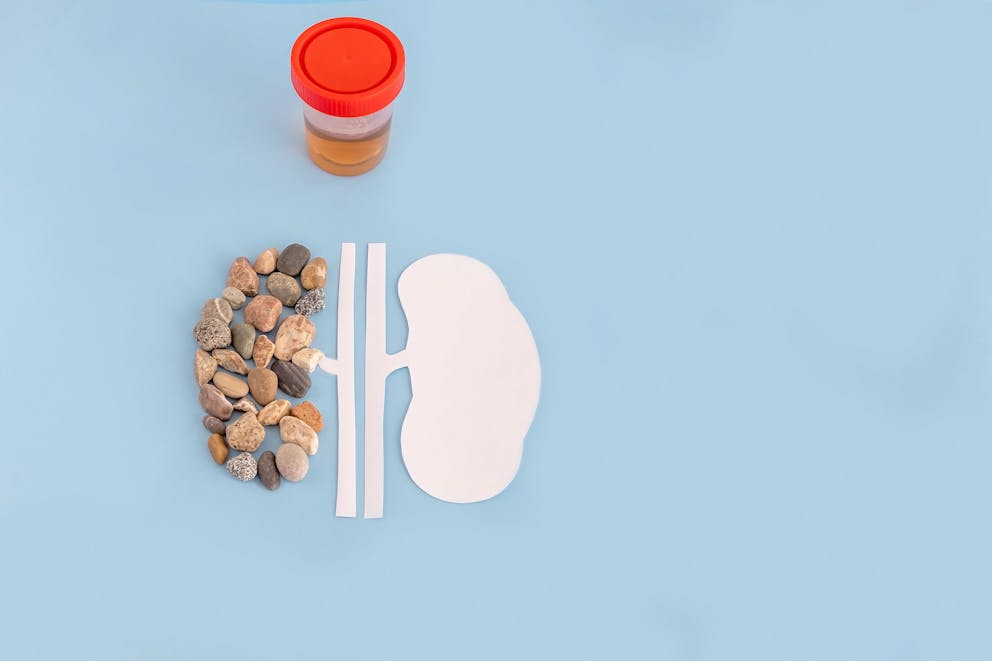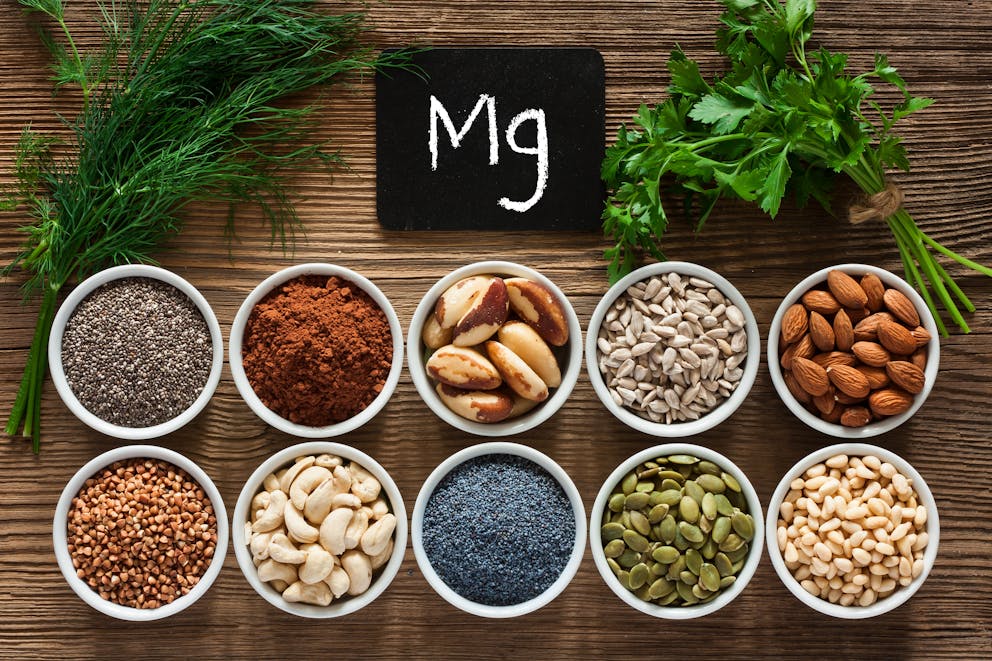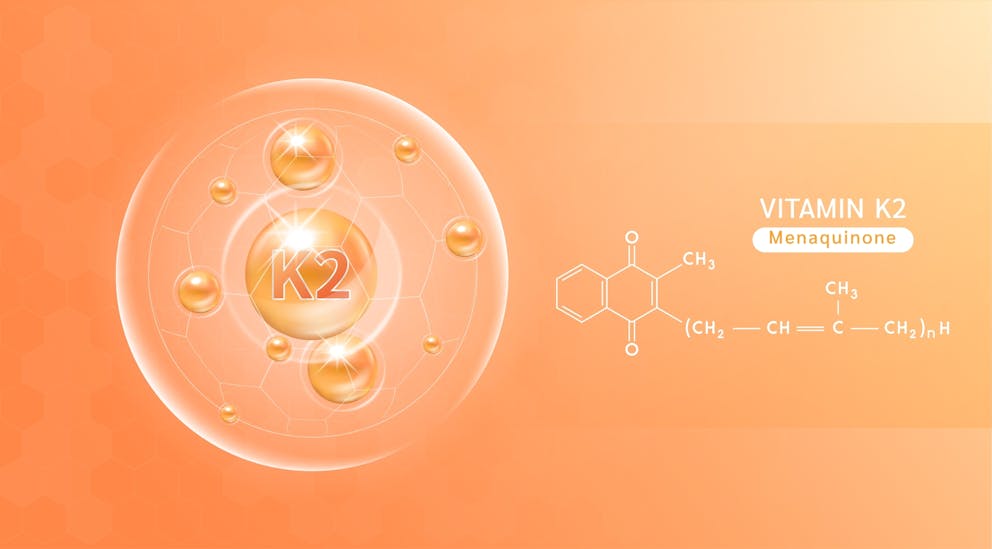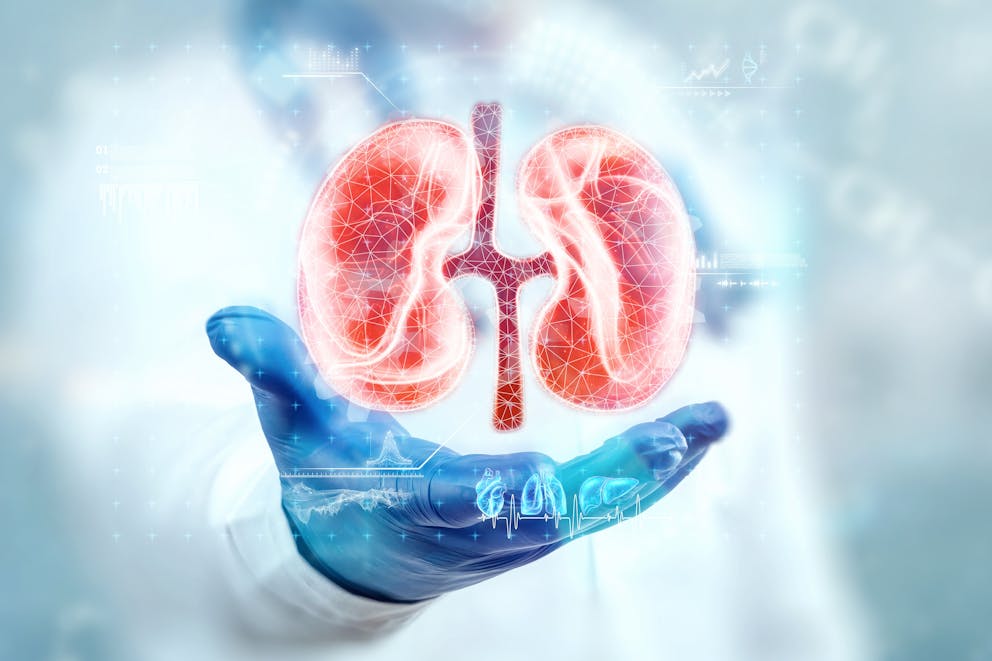Can Vitamin K2 Dissolve Kidney Stones?

How to Read Your Body
Learn to recognize common symptoms and uncover their underlying health issues
Understand the signs of nutrient deficiencies to manage your health
Explore the four metabolic body types and the core factors that influence them
Interpret your body's signals from head to toe to identify potential health concerns

How to Read Your Body
Learn to recognize common symptoms and uncover their underlying health issues
Understand the signs of nutrient deficiencies to manage your health
Explore the four metabolic body types and the core factors that influence them
Interpret your body's signals from head to toe to identify potential health concerns

How to Read Your Body
Learn to recognize common symptoms and uncover their underlying health issues
Understand the signs of nutrient deficiencies to manage your health
Explore the four metabolic body types and the core factors that influence them
Interpret your body's signals from head to toe to identify potential health concerns

How to Read Your Body
Learn to recognize common symptoms and uncover their underlying health issues
Understand the signs of nutrient deficiencies to manage your health
Explore the four metabolic body types and the core factors that influence them
Interpret your body's signals from head to toe to identify potential health concerns

How to Read Your Body
Learn to recognize common symptoms and uncover their underlying health issues
Understand the signs of nutrient deficiencies to manage your health
Explore the four metabolic body types and the core factors that influence them
Interpret your body's signals from head to toe to identify potential health concerns

How to Read Your Body
Learn to recognize common symptoms and uncover their underlying health issues
Understand the signs of nutrient deficiencies to manage your health
Explore the four metabolic body types and the core factors that influence them
Interpret your body's signals from head to toe to identify potential health concerns

How to Read Your Body
Learn to recognize common symptoms and uncover their underlying health issues
Understand the signs of nutrient deficiencies to manage your health
Explore the four metabolic body types and the core factors that influence them
Interpret your body's signals from head to toe to identify potential health concerns

How to Read Your Body
Learn to recognize common symptoms and uncover their underlying health issues
Understand the signs of nutrient deficiencies to manage your health
Explore the four metabolic body types and the core factors that influence them
Interpret your body's signals from head to toe to identify potential health concerns

How to Read Your Body
Learn to recognize common symptoms and uncover their underlying health issues
Understand the signs of nutrient deficiencies to manage your health
Explore the four metabolic body types and the core factors that influence them
Interpret your body's signals from head to toe to identify potential health concerns

How to Read Your Body
Learn to recognize common symptoms and uncover their underlying health issues
Understand the signs of nutrient deficiencies to manage your health
Explore the four metabolic body types and the core factors that influence them
Interpret your body's signals from head to toe to identify potential health concerns

How to Read Your Body
Learn to recognize common symptoms and uncover their underlying health issues
Understand the signs of nutrient deficiencies to manage your health
Explore the four metabolic body types and the core factors that influence them
Interpret your body's signals from head to toe to identify potential health concerns

How to Read Your Body
Learn to recognize common symptoms and uncover their underlying health issues
Understand the signs of nutrient deficiencies to manage your health
Explore the four metabolic body types and the core factors that influence them
Interpret your body's signals from head to toe to identify potential health concerns

How to Read Your Body
Learn to recognize common symptoms and uncover their underlying health issues
Understand the signs of nutrient deficiencies to manage your health
Explore the four metabolic body types and the core factors that influence them
Interpret your body's signals from head to toe to identify potential health concerns

How to Read Your Body
Learn to recognize common symptoms and uncover their underlying health issues
Understand the signs of nutrient deficiencies to manage your health
Explore the four metabolic body types and the core factors that influence them
Interpret your body's signals from head to toe to identify potential health concerns

How to Read Your Body
Learn to recognize common symptoms and uncover their underlying health issues
Understand the signs of nutrient deficiencies to manage your health
Explore the four metabolic body types and the core factors that influence them
Interpret your body's signals from head to toe to identify potential health concerns

How to Read Your Body
Learn to recognize common symptoms and uncover their underlying health issues
Understand the signs of nutrient deficiencies to manage your health
Explore the four metabolic body types and the core factors that influence them
Interpret your body's signals from head to toe to identify potential health concerns

How to Read Your Body
Learn to recognize common symptoms and uncover their underlying health issues
Understand the signs of nutrient deficiencies to manage your health
Explore the four metabolic body types and the core factors that influence them
Interpret your body's signals from head to toe to identify potential health concerns

How to Read Your Body
Learn to recognize common symptoms and uncover their underlying health issues
Understand the signs of nutrient deficiencies to manage your health
Explore the four metabolic body types and the core factors that influence them
Interpret your body's signals from head to toe to identify potential health concerns

How to Read Your Body
Learn to recognize common symptoms and uncover their underlying health issues
Understand the signs of nutrient deficiencies to manage your health
Explore the four metabolic body types and the core factors that influence them
Interpret your body's signals from head to toe to identify potential health concerns

How to Read Your Body
Learn to recognize common symptoms and uncover their underlying health issues
Understand the signs of nutrient deficiencies to manage your health
Explore the four metabolic body types and the core factors that influence them
Interpret your body's signals from head to toe to identify potential health concerns

How to Read Your Body
Learn to recognize common symptoms and uncover their underlying health issues
Understand the signs of nutrient deficiencies to manage your health
Explore the four metabolic body types and the core factors that influence them
Interpret your body's signals from head to toe to identify potential health concerns

How to Read Your Body
Learn to recognize common symptoms and uncover their underlying health issues
Understand the signs of nutrient deficiencies to manage your health
Explore the four metabolic body types and the core factors that influence them
Interpret your body's signals from head to toe to identify potential health concerns

How to Read Your Body
Learn to recognize common symptoms and uncover their underlying health issues
Understand the signs of nutrient deficiencies to manage your health
Explore the four metabolic body types and the core factors that influence them
Interpret your body's signals from head to toe to identify potential health concerns

How to Read Your Body
Learn to recognize common symptoms and uncover their underlying health issues
Understand the signs of nutrient deficiencies to manage your health
Explore the four metabolic body types and the core factors that influence them
Interpret your body's signals from head to toe to identify potential health concerns

How to Read Your Body
Learn to recognize common symptoms and uncover their underlying health issues
Understand the signs of nutrient deficiencies to manage your health
Explore the four metabolic body types and the core factors that influence them
Interpret your body's signals from head to toe to identify potential health concerns

How to Read Your Body
Learn to recognize common symptoms and uncover their underlying health issues
Understand the signs of nutrient deficiencies to manage your health
Explore the four metabolic body types and the core factors that influence them
Interpret your body's signals from head to toe to identify potential health concerns

How to Read Your Body
Learn to recognize common symptoms and uncover their underlying health issues
Understand the signs of nutrient deficiencies to manage your health
Explore the four metabolic body types and the core factors that influence them
Interpret your body's signals from head to toe to identify potential health concerns

How to Read Your Body
Learn to recognize common symptoms and uncover their underlying health issues
Understand the signs of nutrient deficiencies to manage your health
Explore the four metabolic body types and the core factors that influence them
Interpret your body's signals from head to toe to identify potential health concerns
Evidence suggests that vitamin K can promote healthy kidney function. But can vitamin K2 dissolve kidney stones?
Vitamin K2 helps prevent calcification, lowers the risk of calcium crystallization, and can enhance the kidneys' ability to break up kidney stones.
Let’s look at common causes of kidney stones and discover how vitamin K2 can lower the risk of kidney disease.

What are kidney stones?
Kidney stones, also known as renal calculi, are hard crystalline deposits of minerals and salts inside the kidneys or urinary tract.
The size and shape of kidney stones can vary significantly, ranging from small kidney stones the size of a grain of rice to large stones that can measure more than one inch in diameter.
While small stones may pass on their own, larger stones can block ducts in the urinary system and obstruct urine flow from the kidney to the bladder.
Kidney stones can cause significant pain and, if left untreated, may lead to complications, such as enlarged kidneys and loss of kidney function.
One of the most common causes of kidney stones is supersaturated urine due to dehydration, which makes it easier for minerals and salts to crystallize and form stones.
Other risk factors linked to kidney stones:
Family history
Obesity
High calcium intake
Types of kidney stones
Urine contains various waste products, including calcium, phosphate, oxalates, and uric acid, all of which can crystallize and form kidney stones.
The most common types of kidney stones include:
Calcium oxalate stones
Calcium phosphate stones
Struvite stones
Uric acid stones
Around 80 percent of all kidney stones consist of calcium oxalate crystals, typically caused by high concentrations of urinary calcium and oxalates.
Consuming excessive amounts of high-oxalate foods and taking calcium supplements can harm your health and significantly increase kidney stone risk.
Watch the video below to learn how to naturally dissolve kidney stones.
How to dissolve kidney stones
Understanding vitamin K2 and calcium oxalate stones
Vitamin K2 is a fat-soluble vitamin that activates matrix Gla protein (MGPs), a group of proteins that bind to free calcium and deposit it into bone and teeth.
This helps maintain normal calcium levels and plays a crucial role in preventing the accumulation of calcium in soft tissues such as blood vessels and the kidneys.
Lack of adequate vitamin K levels can lead to high calcium concentrations in the urinary system, a primary risk factor for kidney stone development.
A study published in Nephrology Dialysis Transplantation found that vitamin K2 deficiency is associated with calcium oxalate stone formation and may increase the risk of renal vascular calcification characterized by calcium deposits within the kidneys.

Can vitamin K2 dissolve kidney stones?
Not only does vitamin K2 play a role in lowering the risk of stone formation, but maintaining optimal vitamin K levels may also help dissolve existing kidney stones.
A study published by The National Library of Medicine suggests that vitamin K2 supplementation can reduce the size and quantity of kidney stones by increasing levels of MGPs within the kidneys, which can directly inhibit calcium crystallization and dissolve oxalate crystals.
In addition, vitamin K2 may prevent renal vascular calcification and support normal circulation, which enhances the kidneys' ability to prevent and even reverse calcium oxalate crystal formation.

More ways to prevent kidney stones
Kidney stones can be excruciating and may require invasive surgery, and taking steps to prevent kidney stone formation is the best strategy to support healthy kidneys.
Here are six ways you can lower the risk of kidney stones
1. Stay hydrated
Drinking plenty of fluids to stay hydrated avoids highly concentrated urine and is one of the most effective ways to lower your risk of kidney stones.
2. Drink lemon water
Citrates are salts of citric acid, a naturally occurring compound found in citrus fruits such as lemons and limes.
Citrates bind to urinary calcium, which prevents calcium crystallization, and consuming plenty of lemons or drinking lemon water can help eliminate and prevent kidney stones.
In addition, magnesium citrate or potassium citrate are well-tolerated supplemental sources of citrates that inhibit calcium binding and may lower the risk of calcium stones.
3. Avoid oxalate-rich foods
Most kidney stones form when urinary calcium binds to oxalates, a natural compound found in certain plant foods such as grapefruits, potatoes, dates, avocados, spinach, wheat, and beets.
Limiting the intake of oxalate-rich foods to prevent kidney stones has been found especially beneficial for individuals with poor kidney function, which often are calcium oxalate stone formers.

4. Increase magnesium intake
An article published by the National Kidney Foundation suggests magnesium may help prevent kidney stone formation by reducing calcium oxalate crystal growth.
In addition, magnesium can raise the pH of urine, which is linked to a lower risk of kidney stones as it inhibits calcium and oxalate binding.
Food including nuts, seeds, leafy green vegetables, dark chocolate, oily fish, and dairy products are excellent sources of magnesium.
5. Maintain healthy vitamin D levels
Vitamin D3 is another member of the fat-soluble vitamins and works in synergy with vitamin K2 to regulate calcium metabolism.
Research published in Nature Reviews suggests that vitamin D helps balance the ratio of urinary
oxalates to calcium, which is crucial in preventing the development of kidney stones.
However, it’s important to note that excess vitamin D can lead to elevated calcium levels, especially when combined with calcium supplementation, which may increase the risk of kidney stones.
6. Consume probiotic foods
A study published in Current Opinion in Urology found that a diverse intestinal microflora may protect against the development of kidney stone disease.
It’s believed that certain beneficial bacteria play a role in intestinal oxalate absorption, which may help lower levels of urinary oxalates and the risk of kidney stones.
Fermented foods, including kimchi, sauerkraut, natto, and kefir, are some of the best probiotic foods, and regularly consuming probiotics has been linked to a diverse intestinal microbiome.

How long does it take to dissolve kidney stones?
How long it takes to dissolve kidney stones can vary significantly depending on factors such as the size and composition of the stones, overall kidney health, and hydration levels.
While small stones can dissolve within three to four weeks, larger stones may take significantly longer to break up and pass.
However, not all types of kidney stones can be dissolved and may require surgery or shock waves, a procedure known as lithotripsy.
It’s important to note that kidney stones can lead to kidney damage, and it’s crucial to consult a healthcare professional if you experience kidney stone symptoms, including pain in the lower back, bloody urine, difficulties passing urine, or fever.

Other benefits of vitamin K2
In addition to regulating calcium balance, vitamin K2 plays a critical role in various physiological functions.
Here are three health benefits of vitamin K2.
1. Supports cardiovascular health
Vitamin K2 redirects calcium into the bones and teeth, significantly reducing the risk of arterial stiffness and vascular calcification, a leading cause of atherosclerosis, heart attacks, and strokes.
2. Lowers the risk of osteoporosis
Evidence suggests a link between osteoporosis and vitamin K2 deficiency.
Vitamin K activates osteocalcin, a protein that binds to calcium and incorporates it into bone tissue, which supports bone density and bone strength.
3. Promotes fetal bone development
Maintaining healthy levels of vitamin K2 while pregnant has been found to promote fetal bone development and can lower the risk of excessive bleeding during childbirth.

Key takeaways
Can vitamin K2 dissolve kidney stones?
Evidence suggests that vitamin K2 plays a vital role in activating proteins that inhibit the formation of kidney stones and can help dissolve calcium oxalate crystals, the most common type of kidney stone.
In addition, vitamin K may prevent renal vascular calcification, which promotes kidney function and enhances the kidneys' ability to inhibit and even reverse calcium oxalate crystallization.
Additional vitamin K2 and D3 resources
FAQ
1. Is vitamin K2 good for your kidneys?
Vitamin K2 promotes healthy kidney function, lowers the risk of kidney stones, and helps prevent renal vascular calcification, which can reduce blood flow within the kidneys and lead to kidney damage.
2. How long does it take for K2 to reverse calcification?
Depending on the severity of calcium accumulation in soft tissues, it can take three to six months of vitamin K2 supplementation to reverse calcification.
3. What vitamins reduce kidney stone formation?
Vitamins K2 and D3 promote healthy kidney function, lower the risk of kidney stone formation, and may help dissolve calcium oxalate crystals.
In addition, vitamin B6 has been found to enhance the activity of enzymes that break down oxalates, which may reduce the accumulation of urinary oxalate, a leading cause of calcium oxalate stones.
4. Can vitamin K2 dissolve kidney stones?
Vitamin K2 may dissolve kidney stones by activating matrix Gla protein (MGPs), a protein that inhibits calcium crystallization and helps break down calcium oxalate crystals.
5. How long does it take to dissolve kidney stones?
While small kidney stones can dissolve within three to four weeks, it can take up to six months to break up and pass larger stones.
6. Can vitamin K2 lower the risk of calcium oxalate stones?
Yes, vitamin K2 has been found to lower the risk of calcium oxalate stones.
Vitamin K2 redirects calcium from soft tissues such as blood vessels and the kidneys into bone. This reduces renal and urinary calcium levels linked to a lower risk of calcium oxalate stone formation.
Sources
Previous blog
Oregano Oil for Ear Infections – Easy Home Remedy
Popular
08/21/2024
40.3K views
05/22/2024
36.9K views
08/19/2024
214.6K views
03/18/2024
11/21/2022




